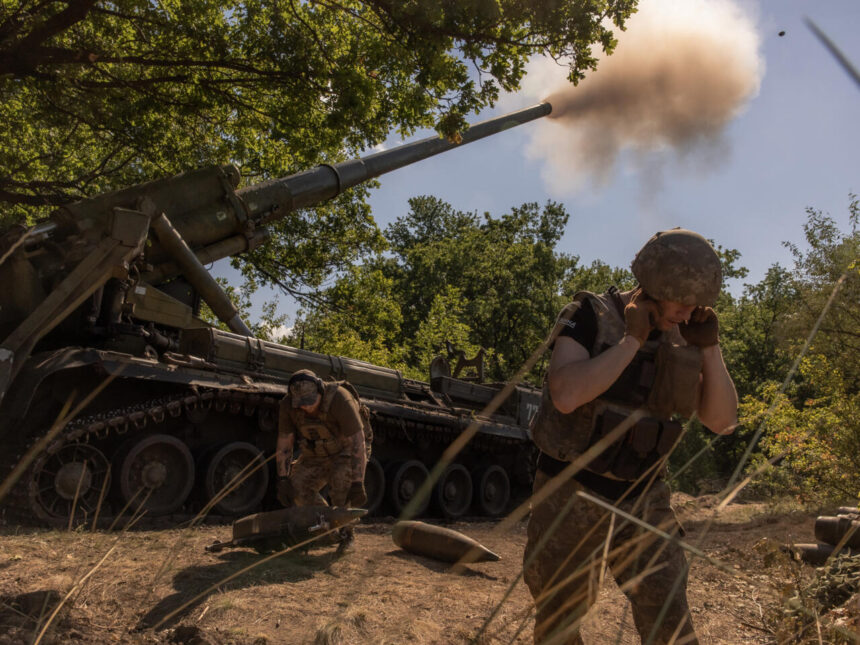Summary by Geopolist | Istanbul Center for Geopolitics:
The recent Russian offensive in Donetsk, aimed at the vital city of Pokrovsk, presents military and economic risks to Ukraine. The city’s seizure would sever a crucial logistics center for Ukraine’s eastern military endeavors and impede the supply of metallurgical coal, indispensable for Ukraine’s steel and iron manufacturing, which remains pivotal to its economy despite the ongoing conflict. The loss of Pokrovsk would diminish Ukraine’s capacity to defend Donetsk and facilitate additional Russian incursions against critical towns such as Dnipro, intensifying economic difficulties and jeopardizing Ukraine’s industrial foundation.
Pokrovsk, formerly a prosperous city, holds considerable importance in Ukraine’s military strategy and economics. Functioning as a transportation nexus, it facilitates the deployment of personnel and resources within the area. Pokrovsk is economically crucial to Ukraine’s steel industry, providing metallurgical coal essential for pig iron production, the cornerstone of Ukraine’s steel manufacturing. The steel sector not only sustains employment and infrastructure but also substantially contributes to Ukraine’s GDP and export revenues, especially during wartime.
The economic ramifications of losing Pokrovsk would be substantial. Ukraine’s dependence on locally sourced coal to operate its antiquated blast furnaces implies that, in the absence of coal from Pokrovsk, steel manufacturers would have to resort to pricier imports. Countries such as Australia and the U.S. have augmented their metallurgical coal shipments to Ukraine; yet, the importation of this resource is both expensive and logistically complex due to persistent threats to Black Sea shipping. Consequently, Ukraine’s capacity to manufacture steel at competitive costs would be undermined, exacerbating its already beleaguered economy.
The loss of Pokrovsk would significantly impair Ukraine’s tax income, predominantly reliant on its steel sector. As production declines and dependence on imports increases, Ukraine’s financial stability will be increasingly compromised. Moreover, global market conditions—especially China’s overcapacity in steel production—intensify Ukraine’s difficulties in sustaining a sustainable steel export market. The situation is exacerbated by EU trade rules that presently prioritize Russian iron exports over those of Ukraine, even within the conflict, further diminishing Ukraine’s competitiveness.
The capture of Pokrovsk would confer a significant military advantage to Russian forces, facilitating future incursions into Donetsk and against key urban centers such as Dnipro. Experts predict that Pokrovsk may resemble Bakhmut, undergoing a protracted siege as Ukrainian soldiers strive to protect it. Nonetheless, with each mile acquired by Russian forces, Ukraine’s capacity to defend other critical areas in eastern Ukraine declines.
Moreover, Russia’s endeavor to seize Pokrovsk prior to the arrival of severe winter circumstances intensifies the offensive. Should Russian forces succeed in seizing the city, they will be strategically positioned to initiate further offensives under improved weather circumstances, potentially resulting in a more extensive disintegration of Ukrainian fortifications in the area.
The collapse of Pokrovsk may expedite Ukraine’s transition to more sustainable and resilient steel production techniques, in addition to the war’s immediate repercussions. Experts propose that Ukraine may transition to utilizing natural gas or nuclear energy for its steel manufacturing, so reducing its reliance on coal and enhancing the cleanliness of its industry while decreasing dependence on imports. Nevertheless, these transformations must be postponed until the conclusion of the conflict, as the current emphasis is on survival and defense.
The seizure of Pokrovsk would be a substantial military and economic setback for Ukraine, intensifying its wartime challenges. The fall of this vital city may precipitate a cascade of consequences, diminishing Ukraine’s capacity to defend other territories, jeopardizing its steel industry, and ultimately endangering the nation’s economic and military stability.
Read the full article here.







